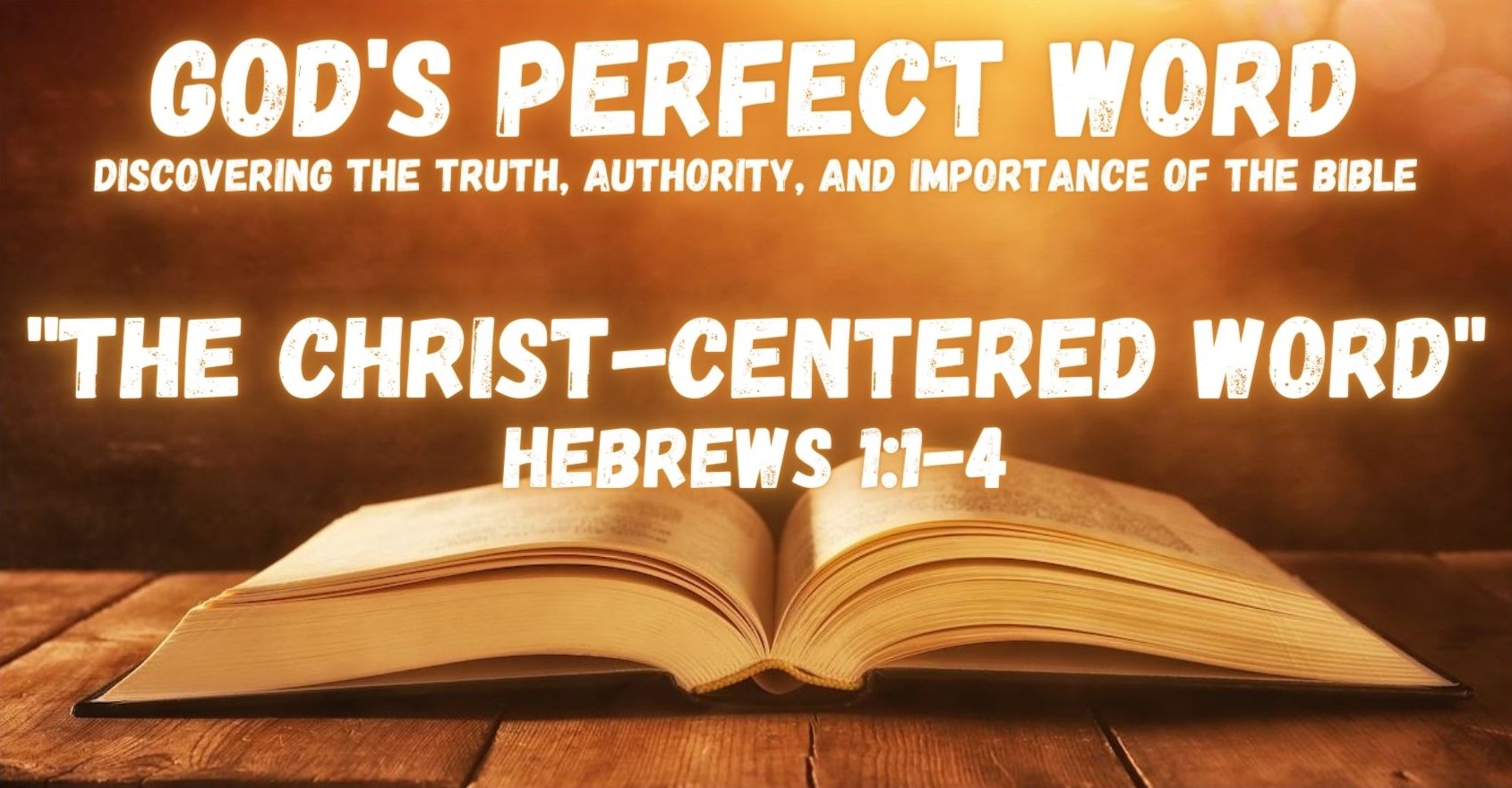Hebrews 1:1-4
God, who at sundry times and in divers manners spake in time past unto the fathers by the prophets, 2 Hath in these last days spoken unto us by his Son, whom he hath appointed heir of all things, by whom also he made the worlds; 3 Who being the brightness of his glory, and the express image of his person, and upholding all things by the word of his power, when he had by himself purged our sins, sat down on the right hand of the Majesty on high: 4 Being made so much better than the angels, as he hath by inheritance obtained a more excellent name than they.
Perhaps the greatest thing that we take for granted in this world is that God has spoken. When mankind rebelled against God in the Garden of Eden, and has been rebelling since, God did not leave us to ourselves. He didn’t give us the wrath and punishment that we deserved immediately. Instead, He came to us with immeasurable grace and has given us a way back to Him through His Son Jesus Christ. Throughout history and ultimately in His Son, God has spoken. This passage in Hebrews is one of the greatest in all of the Bible because it tells us that God has been speaking through a variety of means in history through the prophets, but has ultimately spoken to all people in the person of His Son, Jesus Christ. Jesus is the “Word” of God that “was made flesh and dwelt among us” (John 1:14). The whole of Scripture testifies to Jesus and His work in reconciling sinners to God and redeeming the world from sin. In Hebrews 1:1-4, there six ways or places from which Christ speaks as God’s ultimate revelation. We will be introduced to four this week and the remainder next week.
First, we find that Jesus speaks as fullness of deity. The title, “Son,” separates Jesus from all other beings. It is not a way of expressing that He is less than God the Father, but actually communicates that He is One with the Father. John 1:1 tells us that Jesus is the Word and that He is God. John 1:14 tells us that He became a man (“was made flesh”), so that God became a man and lived among us. The whole Old Testament points forward to the reality that He would come as the Messiah, pay the price for our sins, and eventually rule over a redeemed humanity on a redeemed earth. The New Testament tells us that He came, paid the price for our sins, and is coming again to rule. Therefore, to know Jesus is to know God. Jesus reveals who God is in the fullest way. John 1:18 tells us, “No man hath seen God at any time, the only begotten Son, which is in the bosom of the Father, he hath declared him.”
Next, Jesus speaks as owner of all things. Since Jesus is God, it means that this creation (us included) belongs to Him. Verse 2 tells us that He is “appointed heir of all things.” That means that He will inherit all things. God originally made a perfect creation, made man in His image, and entrusted His entire creation to mankind as His representatives. Man sinned and the entire creation fell under a curse. Jesus comes as a man in our place to restore what was lost in the Garden of Eden so long ago. Through His work, He becomes the rightful heir of all things and will share that with all who follow Him (Romans 8:17).
We also find that Jesus speaks as Creator of all worlds. The author of Hebrews tells us next that Jesus is responsible for the creation of all things that exist. This is echoed in Colossians 1:16, “For by him were all things created, that are in heaven, and that are in earth, visible and invisible, whether they be thrones, or dominions, or principalities, or powers: all things were created by him, and for him” and John 1:3, “All things were made by him; and without him was not any thing made that was made.” Jesus is the Creator. That means that when Genesis 1:3 and following tells us, “And God said,” that it was Jesus speaking. He is the Creator to whom we are all accountable. He made us and He has come to redeem us.
Lastly, we learn that Jesus speaks as source of all truth. The first aspect of this is that Jesus speaks as God in the flesh. Since Jesus is God, He speaks with the ultimate authority as God. He is the full revelation of God as “the brightness of His glory” and “the express image of His person.” Colossians 2:9 further tells us that, “in him dwelleth all the fulness of the Godhead bodily.” Jesus is God in the flesh. He is fully God and took on humanity. We can only know God through Jesus, the image of God (John 14:6).
God has spoken. He has spoken through His Word that testifies to His Son, Jesus Christ. The only way that you and I can know God or be reconciled to God is through Jesus. The question for us as we consider this passage is, “Do you know the Jesus of Scripture?” On that question hangs our eternal destiny. One day everyone will unanimously recognize that He is Lord (Philippians 2:9-11) and eternity will continue to bear out that God, in His grace, has spoken.






